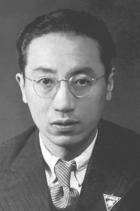
Fei Hsiao-t’ung is one of the social scientists in China best known in the West. His major works in English are Peasant Life in China: A Field Study of Country Life in the Yangtze Valley (1939), a pioneering effort in community studies of largescale literate civilizations which was described by Bronislaw Malinowski as “a landmark in the development of anthropological field-work theory” (in Fei 1939:xiii); Earthbound China: A Study of Rural Economy in Yunnan (1945, with Chang Chih-i), a classic analysis of peasant economy; and China’s Gentry: Essays in Rural-Urban Relations (1953).
Fei received his advanced education in the West (his Ph.D. was from the London School of Economics), and he lectured and studied in the United States and England. Although he was known as a “liberal,” he was never closely associated with the Chinese Communist Party, and given his reputation and wide circle of friends outside of China, it is not surprising that close attention has been paid to his role in the People’s Republic of China (see, for example, the exchange in Encounter in 1955–56, including a letter by Fei himself).
The articles by and about Fei translated below were selected for several reasons. Two of the articles, “A Revisit to Kaihsienkung,” by Fei, and “Exposing ‘A Revisit to Kaihsienkung,’” by Chou Shu-lien, Li Fu-t’ung, and Chang Ssu-ch’ien, concern themselves with the village of Kaihsienkung.2 Together with Fei’s original study of that village, reported in Peasant Life in China, and W. R. Geddes’ brief but intense follow-up study done in May 1956, and published as Peasant Life in Communist . . .





